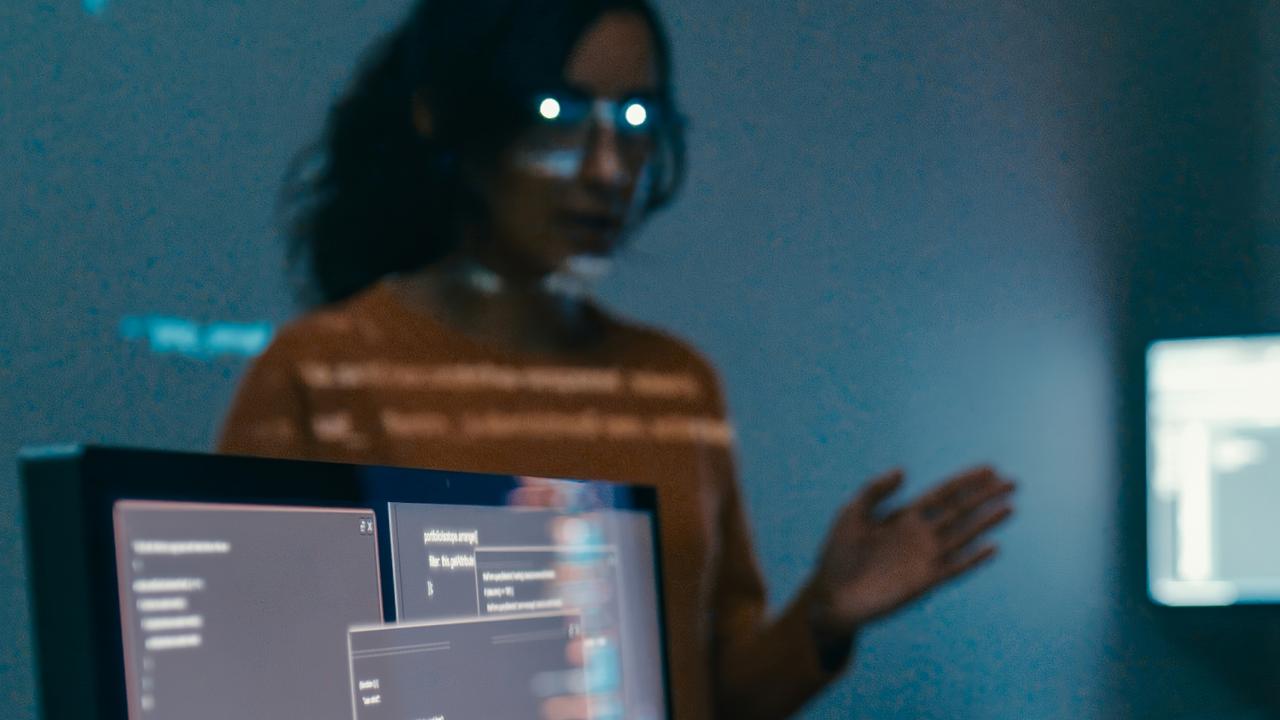‘Dystopian hell’: Saudi Arabia unveils plan for mirrored skyscraper wall city
Plans for a futuristic megacity in the shape of a 170km skyscraper wall are being likened to something out of a dystopian sci-fi movie.
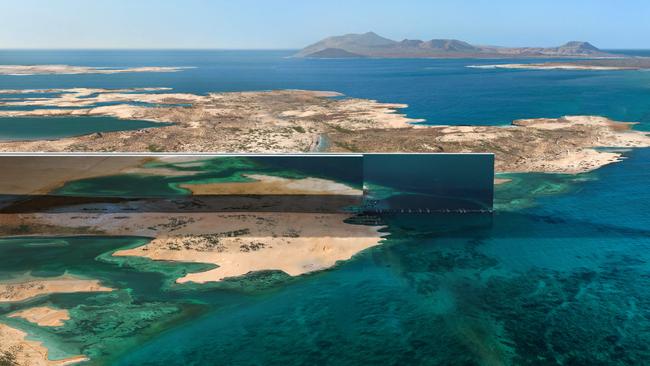
Design
Don't miss out on the headlines from Design. Followed categories will be added to My News.
Saudi Arabia has unveiled plans for a futuristic, car-free megacity in the shape of a 200-metre wide, 500-metre high mirrored skyscraper wall that will span 170 kilometres of desert.
Dubbed “The Line”, the proposed “zero carbon” city – it is claimed – will eventually accommodate nine million residents by 2045, divided into three-dimensional, “five-minute walk neighbourhoods” powered by artificial intelligence.
And subterranean levels will connect four regions with a maximum 20-minute commute.
The concept, first announced last January, is part of Saudi Arabia’s controversial $700 billion Neom mega-project, an ambitious smart city region being built in Tabuk Province on the Red Sea in the country’s northwest.
Saudi Arabia’s Crown Prince Mohammed bin Salman revealed concept designs for The Line on Monday, which allegedly will “run on 100 per cent renewable energy and prioritise people’s health and wellbeing over transportation and infrastructure” by condensing the footprint of a traditional city into just 34 square kilometres.
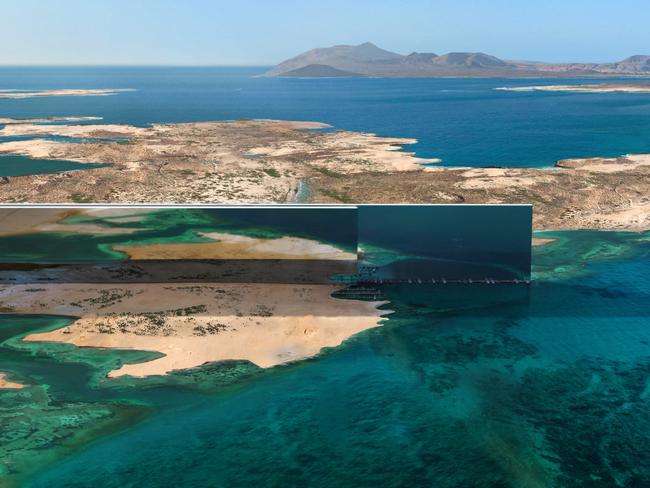
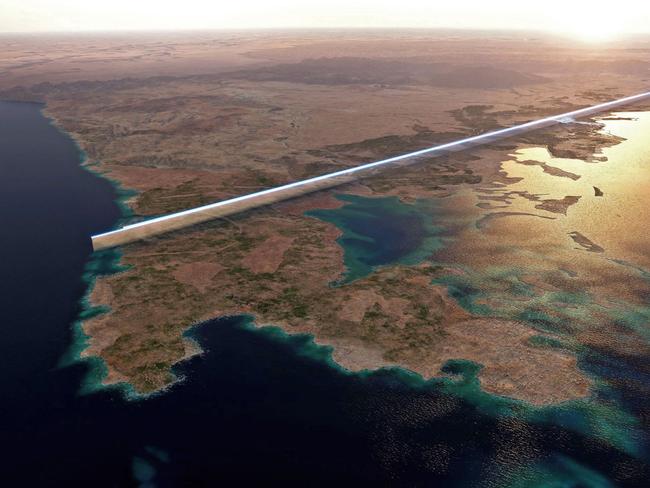
“It puts nature ahead of development and will contribute to preserving 95 per cent of Neom’s land,” a press release from Neom said.
“This in turn will reduce the infrastructure footprint and create never-before-seen efficiencies in city functions. Its ideal climate all year round will ensure that residents can enjoy surrounding nature when travelling on foot. Residents will also have access to all facilities in The Line within a five-minute walk, in addition to a high-speed rail with an end-to-end transit of 20 minutes.”
Presenting a 170 km vertical city that can be travelled end to end in 20 minutes. Giving residents a convenient lifestyle within 5-minute walk neighborhoods, and communities organized in three dimensions, THE LINE is the future of urban living.#TheLINE#NEOMpic.twitter.com/fXntnKt42W
— NEOM (@NEOM) July 25, 2022
The concept of “layering city functions vertically”, including public parks, pedestrian areas, schools, homes and workplaces, is referred to a “Zero Gravity Urbanism” and will “create extraordinary experiences and magical moments”, according to the release.
The Line’s website claims it will be “where the best and brightest live” and will be “a place of unparalleled social and economic experimentation – without pollution and traffic accidents – coupled with world-class preventive healthcare, so people will live longer”.
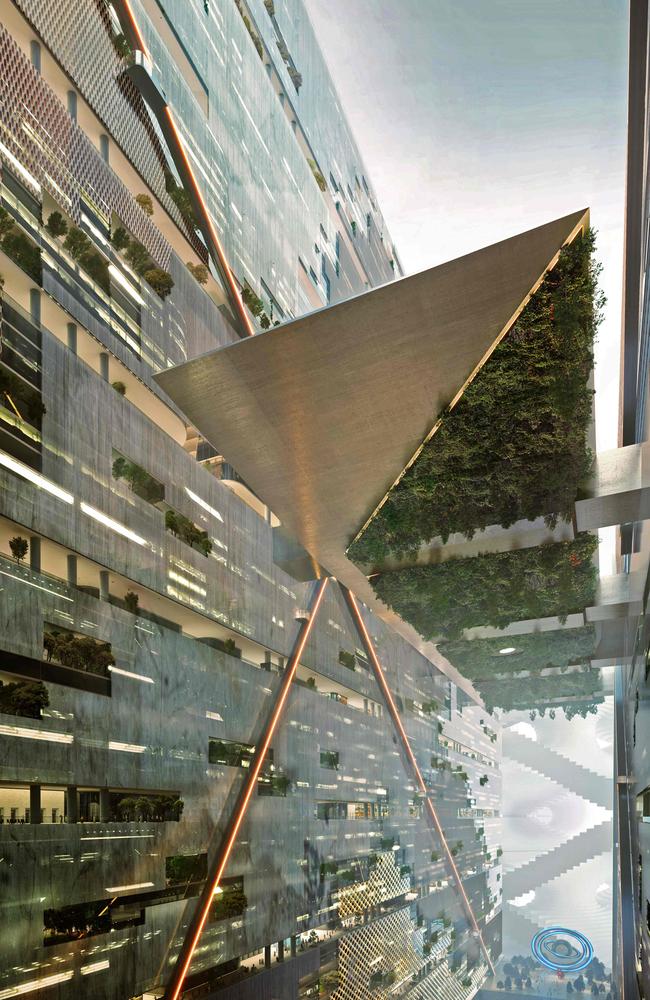
“Built around humans, not technology,” it says.
“A cognitive city that predicts and reacts to what we need, not the other way round. Zero-gravity living will mean a higher-density footprint creates a richer human experience, and new business opportunities. Some 380,000 jobs will be created by 2030.”
The Crown Prince, commonly referred to as MBS, said in a statement that the designs for the city’s “vertically layered communities will challenge the traditional flat, horizontal cities and create a model for nature preservation and enhanced human liveability”.
“The Line will tackle the challenges facing humanity in urban life today and will shine a light on alternative ways to live,” he said.
“We cannot ignore the liveability and environmental crises facing our world’s cities, and Neom is at the forefront of delivering new and imaginative solutions to address these issues. Neom is leading a team of the brightest minds in architecture, engineering and construction to make the idea of building upwards a reality.”
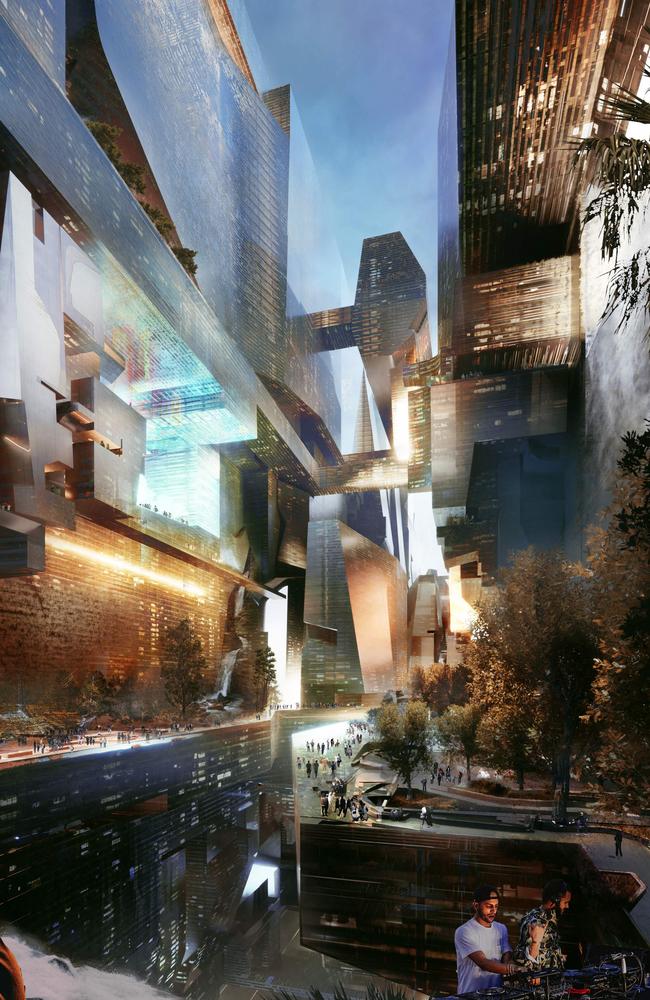
He added, “Neom will be a place for all people from across the globe to make their mark on the world in creative and innovative ways. Neom remains one of the most important projects of Saudi Vision 2030, and our commitment to delivering The Line on behalf of the nation remains resolute.”
A promotional video for The Line has gone viral on Twitter, with many social media users branding the concept “dystopian”.
“What is this dystopian hell line city,” wrote YouTuber Ian Miles Cheong.
“I’d rather be dead than live in something like this,” said Daily Wire host Matt Walsh.
“From ‘don’t build a wall’ to ‘build a wall and live inside it’. This is an exciting opportunity for anyone who has ever dreamt of living in a termite colony.”
British journalist Omid Scobie wrote, “Anyone else getting major Divergent/Snowpiercer vibes?”
The Line sits alongside Neom’s other flagship projects – Oxagon, a “reimagined manufacturing and innovation city”, and Trojena, a “global mountain tourism destination that will offer the Arabian Gulf’s first outdoor skiing”.
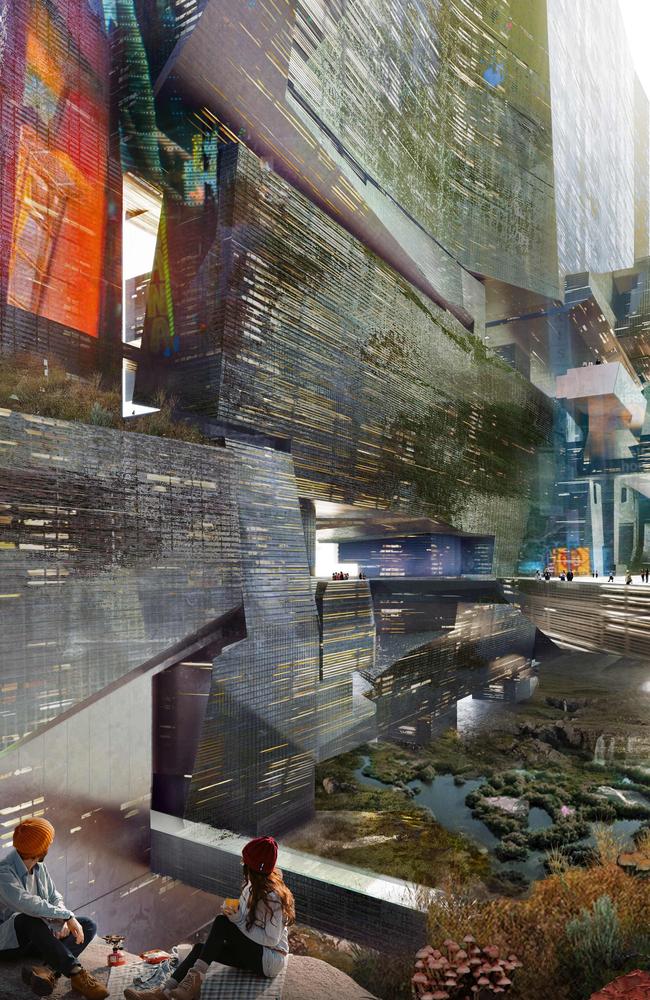
It’s not clear how much the city will cost or when it will be completed, but Neom claims “construction of The Line is under way, and the foundation of the first communities has started”.
First announced in 2017, Neom – a plank of MBS’ bid to diversify the Gulf state’s oil-dependent economy – has consistently raised eyebrows for proposed flourishes like flying taxis and robot maids, even as architects and economists have questioned its feasibility.
In a presentation on Monday night, the Crown Prince sketched out an even more ambitious vision, describing The Line as a car-free utopia that would become the planet’s most liveable city “by far”.
Analysts noted, though, that plans for Neom have changed course over the years, fuelling doubts about whether The Line will ever become reality.
Neom was once touted as a regional “Silicon Valley”, a biotech and digital hub spread over 26,500 square kilometres – now it’s a vehicle for reimagining urban life.
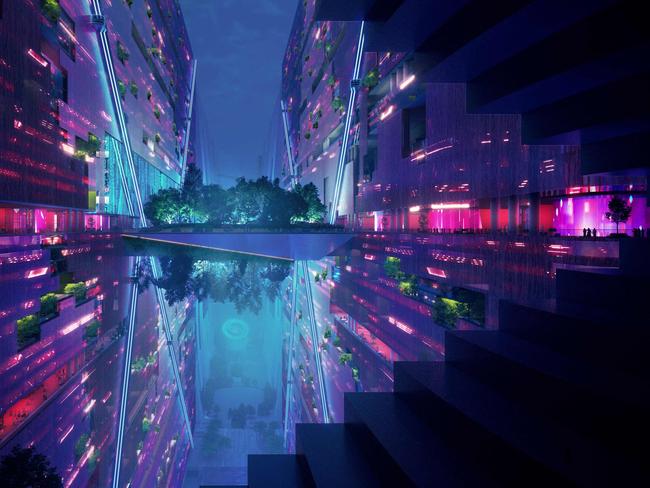
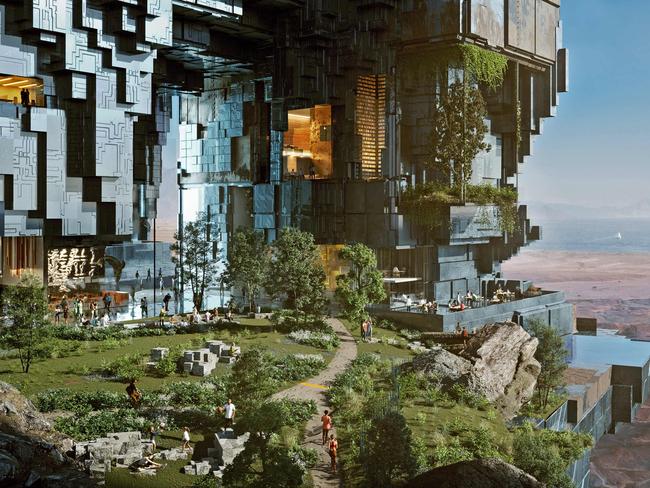
“The concept has morphed so much from its early conception that it’s sometimes hard to determine its direction – scaling down, scaling up or making an aggressive turn sideways,” Robert Mogielnicki of the Arab Gulf States Institute in Washington said.
Officials had earlier said Neom’s population would top one million, but MBS said the number would actually hit 1.2 million by 2030 before climbing to nine million by 2045.
The eye-popping total is part of a hoped-for nationwide population boom that Prince Mohammed said would be necessary to make Saudi Arabia, the world’s biggest crude oil exporter, an economic powerhouse.
The goal for 2030 is to have 50 million people – half Saudis and half foreigners – living in the kingdom, up from roughly 34 million today.
By 2040 the target is 100 million people.
“That’s the main purpose of building Neom, to raise the capacity of Saudi Arabia, get more citizens and more people in Saudi Arabia,” he said. “And since we are doing it from nothing, why should we copy normal cities?”
– with AFP
Originally published as ‘Dystopian hell’: Saudi Arabia unveils plan for mirrored skyscraper wall city




